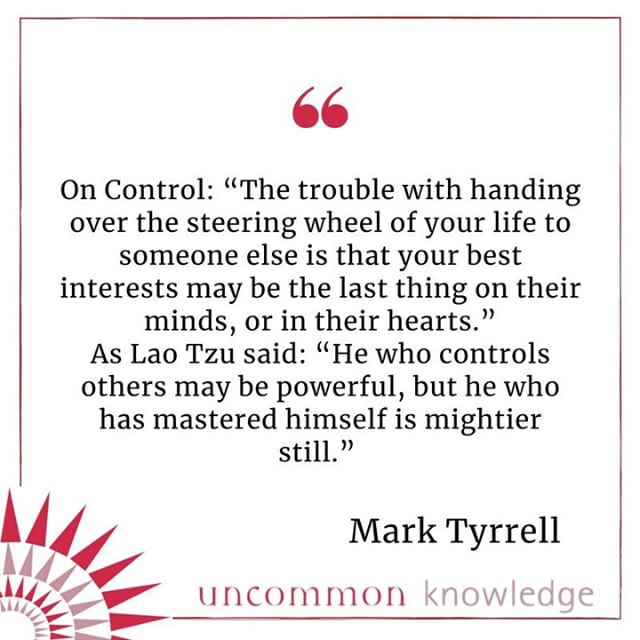
Feeling like a pawn in someone else's game can cause all kinds of emotional problems
“If everything seems under control, you’re just not going fast enough.”
– Mario Andretti, racing driver
What can you control in your life?
Your health? What others think of you? How happy your lover is? The weather? Your finances? Your future? Your appearance? Your mood? Other people’s moods?
Can you control these things completely, or just influence them to some extent?
Some folk feel that they should have 100% control, others that they have none at all.
Prefer to watch instead?
The Dark Side of Your Emotional Needs series:
See the whole Dark Side series here- The Dark Side of Your Emotional Needs – Attention - Part 1
- The Dark Side of Your Emotional Needs – Safety - Part 2
- The Dark Side of Your Emotional Needs – Control - Part 3
- The Dark Side of Your Emotional Needs – Intimacy - Part 4
- The Dark Side of Your Emotional Needs – Connection - Part 5
- The Dark Side of Your Emotional Needs – Status - Part 6
- The Dark Side of Your Emotional Needs – Challenge - Part 7
- The Dark Side of Your Emotional Needs – Mind and Body - Part 8
- The Dark Side of Your Emotional Needs – Meaning - Part 9
This is part three of my ‘The Dark Side of Your Emotional Needs’ series. (You might have read parts one and two already.) In this series, I explore how meeting needs in damaging ways is at the heart of much human suffering, emotional disturbance and tyranny.
We’ve looked at how, when people’s needs remain chronically unmet, they become vulnerable not just to mental illness but also to manipulation by the unscrupulous.
“How did she fall for that conniving conman?” Well, maybe he seemed to meet an unmet need in her life. “How did he fall for that murderous cult?” Likewise, it seemed to offer something that had been chronically lacking.
Promises, promises.
To rehash the analogy I’ve been using throughout this series, if you’re dying of thirst, you might just drink engine oil!
In this piece I want to talk about how the desire to feel in control can work – and be used – against us.
One thing’s for sure, we all need some sense of control.
The need for dignity – or is it control?
We often equate self-direction and autonomy with words like ‘dignity’ – a word which, when you unpack it, really means control over one’s decisions and actions.
The controversial clinic in Switzerland where some terminally ill people have chosen to end their lives on their terms is actually called ‘Dignitas’. It offers the ultimate control – to choose when and where you die!
When elderly people in nursing homes are allowed to make more choices, even minor ones, they have better psychological outcomes and even longevity.[1]
Having a sense of control matters to everyone. Whether you realize it or not, you’ve been seeking to develop and exert control since the moment you were born.
Hardwired to self-determine
From the second we’re born we seek autonomy, independence, and control. We strive to control what we do, the effect others have on us, and the effect we have on others. Even the urges to walk, speak, and play all are partly driven by the desire for independence.
A major parental role is to facilitate independence in their child so they can function and meet their and other people’s needs when they develop into adults.
Adults who feel at least some sense of realistic control tend to be much happier, which is why we need to look at how in or out of control our clients feel. And science has some interesting findings on this.
A healthy dose of control
A recent study found that having a strong sense of control over your circumstances reduces the risk of dying prematurely by 13 percent![2]
Other research has shown that higher perceived control in adolescents is linked to lower psychological stress, better cardiovascular health, lower systemic inflammation, and reduced obesity by the time those adolescents reach young adulthood.[3]
In turn, the healthy decisions that result from perceived control can lead to favourable outcomes much later in life. From pain sensitivity[4]to the onset and maintenance of depression[5], how able (or unable) we feel to control our lives has far-reaching impacts.
But here’s the most interesting thing.
It’s just good to know you could exert control
Even just knowing you could control things seems to make a big difference.
I recall seeing some research (although I couldn’t find it!) which showed that patients who were permitted to self-administer morphine for pain relief used much less than those who had to ask others to provide it.
This quote from Wikipedia describes similar results from another study[6]:
“[I]n one experiment humans performed mental tasks in the presence of distracting noise. Those who could use a switch to turn off the noise rarely bothered to do so, yet they performed better than those who could not turn off the noise. Simply being aware of this option was enough to substantially counteract the noise effect.”
Just knowing we have someone to talk to (whether or not we do), just knowing there are contingency plans in place (whether or not we use them), just knowing we can safely quit a job (whether or not we choose to) can make us happier.
Always be looking for options.
I will often ask my clients, “If the worst did happen, what are some things you could do?” In this way ‘the end of the world’ becomes the beginning of a new one.
But the need for control, just like all primal emotional needs, is so powerful that our drive to meet it can cause huge problems.
The dark side of the need for control
Like all our emotional drives, the need for control can be warped and abused, and paradoxically lead to less control and even tyranny.
We can fall prey to those who seem to offer more control – individual or national ‘dignity’ – but, as if through a clever conjuring trick, end up taking control from us.
Maybe your clients feel overly passive, that life must be done for them, or that “no matter what I do, it doesn’t make any difference!” Learned helplessness is the intimate bedfellow of hopelessness, which is a central feature of depression. Misdiagnosing what you can and can’t control in your life has major impacts.
So why might people feel they are less able to control events that they really are?
Learning not to control
Learned helplessness is the general application of a specific learning. We feel powerless in one situation, so we come to feel powerless in all situations: “That accountant I dated was manipulative, therefore all accountants are manipulative.”
But it’s not just people who can learn to over-apply these feelings. Even animals can develop learned helplessness. Martin Seligman, who coined the term, found that humans and animals who learned they were helpless in one situation (because they really couldn’t change things) would often over-apply that learned helplessness and not bother to try to change things when now they could have.
That’s all very well, but in the non-experimental ebb and flow of human life, how might people learn the illusion of too little control? How might they develop a misperception so powerful that it may shape their whole life?
The need for rebellion
Over-controlling ‘helicopter’ parents (and institutions), despite the best of intentions, may pervert children’s natural drive for autonomy.
I say the best of intentions, but of course if the unconscious drive of the parent is to keep the child dependent, we might question those intentions. Worst intentions disguised as best intentions are the most dangerous of all. After all, they are borne of love!
Parents (who I know get a lot of stick!) may mould children into overly dependent beings, keeping them infantilized – sometimes indefinitely. Parents need to be protective, involved, and loving, but if the child can never have choices or take reasonable risks they may not develop a sense that they can direct things.
Often, depending on the child, there is a bounce-back effect. Something’s got to give because the need for self-direction, for dignity, is so strong.
If the child doesn’t rebel against ‘helicoptering’ they end up feeling that they can’t influence their own lives. They may sink into passivity and powerlessness, feeling that life had better be kind to them because they have no control themselves.
Always doing everything for another person steals their dignity and breeds a hopeless and depressive mindset. If we can’t trust ourselves to do things, then how can we develop a sense of control?
And a further trap may await the poor individual who has not learned to feel their own power.
Live with it because it’s who you are!
The overly dependent person may come to feel even less control if they are caught in the ever-widening dragnet of psychiatric diagnosis.
Ironically, branding someone with a label like ‘dependent personality disorder‘ can make them feel more dependent! When that label is applied confidently by an authority figure, it’s hardly surprising that the diagnosed person may feel more powerless. After all if it’s ‘who you are’ – hardwired – how could you possibly have the control to change it?
But there is another way to come to feel you are less in control than you really are.
Once bitten, twice shy
When a person who suffers intense and prolonged bullying, neglect, or abuse feels unable to exert any influence over adversity of other kinds they can be conditioned to feel that we, not our circumstances, are at the root of our powerlessness. I suggest ways to help clients overcome this overly applied learning here.
Imagine you have been caged for many years, and one day you are freed. But you can’t bring yourself to leave the now wide-open door of the cage. That’s what it’s like for people with a powerless mindset.
Doing too much for a person can condition them into that mindset, as can prolonged adversity. Whatever the route to passivity, the result is often the same: depression and a sense of meaninglessness. As meaning-seeking, meaning-making creatures, this can feel like purgatory.
On the flip side of the coin, some people have the opposite problem: they may come to feel they should control all kinds of stuff which is none of their business to control.
Let me count the ways… I can control you!
Sometimes a need morphs into a greed. A simple and natural need for a good, healthy sense of control transforms into a need to dominate – in other words, hunger for power.
Some see others as chess pieces to be carefully placed to meet their own ends. For these people, the need to control has grown wings and begun napalming all those that populate their lives.
Rather than interrelating with others, they control and manipulate them to meet their own needs exclusively. We all might do this sometimes, but those who do it all the time have a serious problem.
Such people are sometimes referred to as narcissists, sociopaths, and/or ‘control freaks’. They see the currency of human relationships as one of control only. This can be bemusing and confounding for the victim of such interactions who doesn’t see all interaction as a power play.
So how might this pathological social control be exerted?
A person might exert control through force. The bellowing bully. The bull in a china shop steamroller (to spectacularly mix my metaphors). The frustrated, failed concentration camp commandant applicant.
But some controllers are more subtle. You might not even know you have been controlled until you spot the trend.
Some people bully you so nicely ‘for your own good’ you can forget that it is bullying. Others may control those around them more artfully through ’emotional blackmail’, exercising control by playing the victim:
- “If you leave me [to go out for this one evening with your friends] I don’t know what I’ll do!”
- “After all I’ve done for you!”
- “No, you go out [sniff], I’ll be fine [sniff], go and enjoy yourself!”
Emotional blackmailers control others quietly and subtly, all the while seeming to have no control.
Such attempts at controlling others often result when our ideas about how things must be are too tight.
Perilous perfectionism
Some people are perfectionists, rigid and brittle in the way they go about parts of their lives. Of course, many people can be like this sometimes, but for others it’s an ongoing part of their personality – and it can cause real problems.
They know exactly how they want things, and unless you know too, boy are you in trouble!
Maladaptive perfectionism is the desire or need to control all kinds of things that, actually, we would do well to relax with not having to control. That need for a sense of control can get so out of hand that we can’t keep up with it and, ironically, we end up feeling less in control.
So often the antidote lies in the development of the capacity to relax with uncertainty.
Of course, the feeling of wanting to control what may be none of our business to control doesn’t have to be malicious. It can be done with the very best of intentions.
Often, people who overextend their sense of responsibility (control) are decent and caring people. They may feel responsible for all their friends’ and neighbours’ marriages (okay, perhaps I exaggerate mildly) or for every little thing to do with their grown children’s lives.
People may try to control others by trying to make them feel guilty, by suggesting that the person they are targeting should have been able to control all kinds of things that they ‘chose’ not to. “You should have known I would be angry!”
When the need for control is subverted because it’s not met healthily, all kinds of emotional problems can arise.
At least I can control this!
Occasionally I’ve seen clients who’ve told me they have, at one time, attempted suicide. One woman who had actually planned to kill herself said, “You know Mark… it’s weird, but when I made the decision I felt better… like at least I could do something!”
This shows how vital the need for autonomy is and how, when people don’t meet it healthily, it will try to find expression in unhealthy – even fatal – ways.
The thwarted need for control, along with the need to feel safe, might also drive psychological conditions such as:
- Depression (perfectionism has been linked to a much greater risk of suicide[7])
- Obsessive compulsive disorder
- Jealousy (we feel we should control the actions or even thoughts of the object of our focus)
- Eating disorders[8]
- Chronic anger
All these conditions seek to increase our sense of control but paradoxically can lead to feelings of loss of control.
And our individualistic culture doesn’t always help as far as the personal control issue is concerned.
“You can do anything!”
Being reared with the idea that “you can be whatever you want to be!” can, paradoxically, be disempowering.
Why? Because when the self-righteous waves of oversimplified fantasy crash against the unforgiving rocks of reality, the disappointment can be so great as to send people to the opposite pole, feeling that they can’t be anything they want to be.
Human beings have been around for too long to still be peddling oversimplifications. Yes, we can do amazing things. But wanting isn’t enough on its own. Knowledge, hard work and perseverance, personal predilection, and the flexibility to change course if things aren’t working are also pretty useful!
Plus, the ideology of “I can be anything I want to be” is a slippery slope. It can so easily be directed toward others: “You can be anything I want you to be!”
Buying into the overly simplistic self-help ideas that everything, even disease, is down to what we want (and therefore under our control) is dangerous. On the other hand, learning how to relax with uncertainty, develop resilience, and be cool with ambiguity are capacities that really help people thrive.
So is a little bit of cynicism. Through the ages, many leaders have sucked people in with the promise of more control right before snatching it away.
Five simple steps to tyranny
“The Third Reich will always retain its right to control the owners of property.”
– Adolf Hitler
“It is imperative to carry out merciless mass terror against the kulaks, priests and White Guards; unreliable elements are to be locked up in a concentration camp outside the town.”
– Vladimir Lenin
Without further ado, here they are: five simple steps to becoming a successful dictator.
- Take one group, or nation, of people who don’t feel much control
- Raise the anger and bitterness levels to a greater pitch. Slowly bring to the boil
- Sprinkle in some emotionally arousing promises of reclaiming dignity and control
- Add a dash of expectation that your system will give the people greater control (and therefore dignity and status)
- Finally, serve up your own power and take control from the very ones you promised it to.
Mind you, to serve up this dish you might need a (un)healthy dose of charisma – just like Hitler, or Stalin, or Jim Jones.
But if world domination isn’t one of your hobbies, what about money?
Scammers (and I include cult leaders, though to be fair they may also be scamming themselves) often offer the chance at great riches.
Scam, scam, thank you ma’am!
We want more money because more money gives us more control.
We may feel that cashola increases our status, meaning we have more control over what (we believe) others think of us. One thing’s for sure, it certainly increases our options. And the more options you have, the more control you have. Deciding where you go on vacation means more control than not being able to have one at all.
Equating money with more control is all very well, but the drive for this kind of control can become so acute that we can be left in ruins by the first person who seems to say: “Follow me and get rich quick!”
Our desire for money and status, and all the other goodies of life for that matter, can perhaps be traced to our initial attempts as infants to move and direct our own realities.
If you feel powerless – that you have little dignity or autonomy – then your increased ‘hunger’ for control might let you fall prey to any entity that seems to promise more.
The power play of life
Watch for power plays in everyday life. How do others seek to exert control in all the myriad subtle ways of doing it?
How many emotional problems, when we look at the pattern, are just misguided attempts to gain more control (in ways that backfire and make things worse for the person themselves as well as those around them)? How many puzzling or harmful behaviours are actually just cries for more control?
How in control do your clients feel? What parts of their life do they feel they can influence, and what parts not so much? How can we help them to increase their sphere of influence or relax the feeling that they must control stuff that they really don’t have to?
It’s not always easy to control ourselves, and sometimes it might seem easier to let others control us. To let them do the work. But we all need the power, control, and dignity to make at least some important choices for ourselves.
The trouble with handing over the steering wheel to someone else is that your best interests may be the last thing on their minds, or in their hearts.
As Lao Tzu said:
“He who controls others may be powerful, but he who has mastered himself is mightier still.”
And you can catch up on all the articles in this series so far by clicking below:
And you can also join hundreds of practitioners inside Uncommon Practitioners TV where you can watch real therapy with clients struggling to meet various emotional needs. Booking is currently open for a short period – click here to find out more and join us inside.
Notes:
(1) http://onlinelibrary.wiley.com/doi/10.1111/j.1559-1816.1999.tb00133.x/full
(2) http://www.tandfonline.com/doi/full/10.1080/01634372.2016.1267672
(3) http://onlinelibrary.wiley.com/doi/10.1111/j.1540-4560.1991.tb01832.x/full
(4) http://www.sciencedirect.com/science/article/pii/S0885392498800080
(5) http://psycnet.apa.org/record/1988-35828-001
(6) http://psycnet.apa.org/record/1975-10978-001
(7) http://onlinelibrary.wiley.com/doi/10.1111/jopy.12333/abstract











